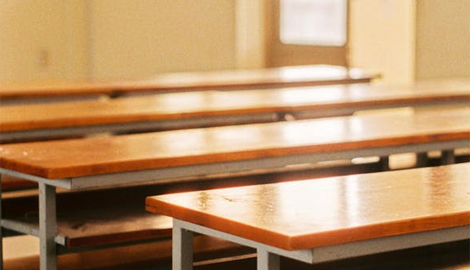![]() School closures in thirteen countries to contain the spread of COVID-19 are disrupting the education of 290.5 million students globally, a figure without precedent. UNESCO is providing immediate support to countries, including solutions for inclusive distance learning.
School closures in thirteen countries to contain the spread of COVID-19 are disrupting the education of 290.5 million students globally, a figure without precedent. UNESCO is providing immediate support to countries, including solutions for inclusive distance learning.
“While temporary school closures as a result of health and other crises are not new unfortunately – said UNESCO Director-General Audrey Azoulay – the global scale and speed of the current educational disruption is unparalleled and, if prolonged, could threaten the right to education.”
“We are working with countries to assure the continuity of learning for all, especially disadvantaged children and youth who tend to be the hardest hit by school closures,” said UNESCO Director-General Audrey Azoulay. “While temporary school closures as a result of health and other crises are not new unfortunately, the global scale and speed of the current educational disruption is unparalleled and, if prolonged, could threaten the right to education.”
UNESCO will convene an emergency meeting of education ministers on 10 March to share responses and strategies to maintain the continuity of learning and assure inclusion and equity.
As of 4 March, 22 countries in three different continents have announced or implemented school closures. Just two weeks ago, China was the only country mandating closures.
Since then, thirteen countries have shut schools nationwide, impacting 290.5 million children and youth who would normally attend pre-primary to upper-secondary classes. A further nine countries have implemented localized school closures to prevent or contain COVID-19. Should these countries also order nationwide school closures, it would prevent an additional 180 million children and youth from attending school.
In response, UNESCO is supporting the implementation of large-scale distance learning programmes and recommending open educational applications and platforms that schools and teachers can use to reach learners remotely. The organization is sharing best practices to leverage inexpensive mobile technologies for teaching and learning purposes to mitigate educational disruption.
School closures, even when temporary, are problematic for numerous reasons. Foremost is a reduction in instructional time, which impacts learning achievement. When schools close, educational performance suffers. Disrupting schooling also leads to other harder to measure losses, including inconveniences to families and decreased economic productivity as parents struggle to balance work obligations with childcare. The closures also compound educational inequities: economically advantaged families tend to have higher levels of education and more resources to fill learning gaps and provide enrichment activities to children who cannot attend school.
UNESCO is working urgently to respond to COVID-19, a major health crisis that now concerns the entire planet. The organization will continue monitoring the size, scale and geographic spread of school closures, and stands ready to support countries as they adopt appropriate inclusive measures.

